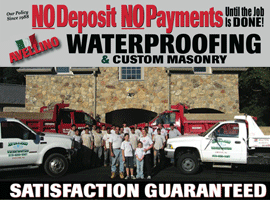The GOP Tax Reform/Cuts Plan
Conandrob is right. Despite some exceptions, New York State's property taxes are lower than NJ's.
Millburn has pretty low taxes for New Jersey, with a 1.8% tax rate, so yes, that is comparable to Scarsdale.
HOWEVER, Millburn's schools spend nowhere near as much as Scarsdale's do and that's why it has a comparable tax rate.
Millburn's school spending is only $19,853 per student, which is at NJ's average. (that amount counts pensions, OPEB, and FICA, which are paid for by the state) Scarsdale's spending is $29,074 per student. Only a tiny number of NJ districts, like Asbury Park and Hoboken, spend as much as Scarsdale.
New York State's school spending is insane. If Millburn were relocated to New York and still only spent $19,853 per student it would be among the lowest spending districts in New York.
I wouldn't know what Scarsdale's schools have that Millburn's schools don't, but it has to be something, so Millburn and Scarsdale's taxes aren't paying for equivalent services. My guess is that Scarsdale's teachers are paid better and there are smaller class sizes.
NYS's property taxes are lower than NJ's on average, 1.62% versus 2.35%. Westchester's average property tax rate is 1.93%. Essex County's (weighted) all-in tax rate is 2.88%. Obviously Essex is more diverse than Westchester, but even the suburban towns here have higher taxes than Westchester. SOMA's tax rate is 3.2. Montclair is 3.05. West Orange is 3.642.
For the Millburn comparison, Millburn people are not getting the same school spending that Scarsdale people are getting.
https://smartasset.com/taxes/new-york-property-tax-calculator
http://education-places.startclass.com/l/10825/Scarsdale-NY
http://www.nj.gov/education/guide/2017/district.shtml
http://www.state.nj.us/treasury/taxation/pdf/lpt/gtrgtrEssex1616.pdf
ska said:
There is a listed sale in the real estate section of the times today in Scarsdale. Sold for $1,535 million and has $53,000 in property taxes. A similarly priced home in Millburn, a comparable town to Scarsdale would have taxes just below $30,000.
conandrob240 said:
My parents and sister live on LI and we've looked at many homes there, taxes are considerably lower for comparable towns with arguably better schools and services.
mikescott said:
conandrob240 said:
even NY has much more reasonable property taxes
Not according to people in Westchester and Long Island...
My parents had a summer home in upstate NY and paid more in property taxes than I was paying for my house in S. Orange.
Would agree that NYC has more reasonable property taxes but easy to do when the average price of an apartment is in the millions.
To confirm, if Millburn were located in Westchester County, it would be in LAST PLACE for school spending.
If Millburn were located in Nassau, it would be third from last place (out of 56 districts). (If SOMA were in Nassau it would be in 3rd to last place too)
So if you are going to compare NYS and NJ suburban tax rates you have to acknowledge that NYS taxpayers are getting more for their money than New Jersey taxpayers are.
Yet on most measures Millburn (and NJ in general) schools rank higher. Nothing wrong with getting value for money.
Runner_Guy said:
NYS's property taxes are lower than NJ's on average, 1.62% versus 2.35%.
And if you take the 0.72% (or so I’ve seen) elephant that is New York City out of the room?
And these tax rates — how is the property value part of the equation being determined? Market value (based on ...)? Locally assessed value? Median value, or the mean? Homeowners only, or also apartments and businesses? And how current are the numbers?
As Mark Twain wrote, “Figures often beguile me.”
Runner_Guy said:
So if you are going to compare NYS and NJ suburban tax rates you have to acknowledge that NYS taxpayers are getting more for their money than New Jersey taxpayers are.
In what ways is a higher cost per-student in NY "more for their money"? With such a consistent disparity in NY vs. NJ per-pupil spending, it seems possible NY and NJ could be getting about the same educational 'stuff' for their money, but the accounting, or some base costs, are just different.
You are right, NYC's low property tax rate lowers NYS's average by a lot, but even if you do the suburb-to-suburb comparison, New York State still has lower property taxes than New Jersey.
WalletHub is the source for the statewide comparative property tax rates I gave. For how the property value is determined, Wallet Hub based its calculations on data that come from the US Census, which is the same source that several other tax-comparison organizations like the Tax Foundation use.
I don't know exactly how the Census calculates real estate value, but I know that NJ and New York use a concept called "Equalized Valuation" for market value and that Equalized Valuation is hard to manipulate.
To determine Equalized Valuation, the state adds up all the individual assessments on properties that are used by towns to apportion taxes.
If real estate sales exceed the official assessment by 10%, then Equalized Valuation equals 110% of the official assessment. If real estate sales exceed official assessment by 25%, then EV = 125% of the aggregate official assessment.
In NY and NJ Equalized Valuation is used to apportion county taxes. In both states it is supposed to be used to apportion state aid too, but NJ's school funding law is completely non-operating and New York State's is off-formula too.
As Mark Twain wrote, “Figures often beguile me.”
There are other nuances that ought to be included in property tax comparisons.
In my earlier post I talked about how NYS school districts spend WAY more than NJ's do, but the other major difference is that New York State has higher income taxes on middle-income people.
For instance, NYS imposes a marginal tax rate of 6.45% on income above $21,400 (though with a $8000 standard deduction). Although NJ has a $0 standard deduction, NJ doesn't impose a rate above 6.45% until you make $500,000.
https://files.taxfoundation.org/20171016171625/SBTCI_2018.pdf
DaveSchmidt said:
Runner_Guy said:And if you take the 0.72% (or so I’ve seen) elephant that is New York City out of the room?
NYS's property taxes are lower than NJ's on average, 1.62% versus 2.35%.
And these tax rates — how is the property value part of the equation being determined? Market value (based on ...)? Locally assessed value? Median value, or the mean? Homeowners only, or also apartments and businesses? And how current are the numbers?
As Mark Twain wrote, “Figures often beguile me.”
Ok. I'm going to take back saying an unqualified "[New York State suburbanites] get more for their money."
My statement was not correct, unless you see the goal of school systems just to spend a lot of money, which I don't.
New York State actually has fewer teachers per student than New Jersey (their student:teacher ratio is 12.7:1 versus NJ's 11.9:1), but it spends MUCH more money than NJ does because it pays those teachers more than NJ does. ($79,152 versus $69,330)
Scarsdale's spending advantage over Millburn (and SOMA) is so enormous that I've got to assume they get something else for that money other than better paid teachers, but I don't know what it is exactly.
New Jersey's schools are actually a lot higher performing than New York State's, so, as weird as this is to say, New Jersey actually is a lot more efficient than New York, although we aren't as efficient as Massachusetts and Maryland.
If you do a comparison between middle-class and diverse districts in New Jersey and New York I think the spending differences would translate into real advantage for New York. I don't think that New York State has districts (or as many districts) with the kind of deprivation that exists in working-class non-Abbott districts like Bloomfield and Belleville.
For instance, Mount Vernon spends over $27000 per student. Only a handful of districts in NJ spend that much.
A more accurate statement would be "New Yorkers get more school spending for their property taxes." The vague "more" is not accurate.
Source for stats:
http://www.nea.org/assets/docs/2017_Rankings_and_Estimates_Report-FINAL-SECURED.pdf
sprout said:
Runner_Guy said:
So if you are going to compare NYS and NJ suburban tax rates you have to acknowledge that NYS taxpayers are getting more for their money than New Jersey taxpayers are.
In what ways is a higher cost per-student in NY "more for their money"? With such a consistent disparity in NY vs. NJ per-pupil spending, it seems possible NY and NJ could be getting about the same educational 'stuff' for their money, but the accounting, or some base costs, are just different.
An update: NJ Legislature has passed a bill that will now go to the Governor for signature would propose a "work-around" to the cap on property taxes by offering tax credits for contributions to a charitable trust set up to help pay for local expenditures. In essence a credit in lieu of a deduction for property taxes. But before you get too excited the IRS could still determine that this plan is not allowable on the grounds that the contributions are not really charitable contributions (or a few other arguments).
I find it funny that many of the same people who called for the closing of tax loopholes on the "rich" are very much in favor of enacting legislation that is, in fact, a loophole.
Stay tuned.
sportsnut said:
I find it funny that many of the same people who called for the closing of tax loopholes on the "rich" are very much in favor of enacting legislation that is, in fact, a loophole.
Really? It's completely different. The new Federal tax law can do significant harm to middle class people. I do not know what you mean by "rich" but a "loophole"that helps ordinary families in their struggle to make ends meet is different from a loophole that helps a billionaire.
sportsnut said:
An update: NJ Legislature has passed a bill that will now go to the Governor for signature would propose a "work-around" to the cap on property taxes by offering tax credits for contributions to a charitable trust set up to help pay for local expenditures. In essence a credit in lieu of a deduction for property taxes. But before you get too excited the IRS could still determine that this plan is not allowable on the grounds that the contributions are not really charitable contributions (or a few other arguments). I find it funny that many of the same people who called for the closing of tax loopholes on the "rich" are very much in favor of enacting legislation that is, in fact, a loophole. Stay tuned. https://www.politico.com/states/new-jersey/story/2018/04/12/new-jersey-legislature-passes-salt-workaround-362279
I just fear that, if states do this, the response from Congress might be to limit or eliminate the charitable donation deduction which would be disastrous for the charities.
already a disaster. With the change in the law resulting in an increase in the standard deduction paired with the limit on state and local taxes, many more people will take the standard deduction- effectively negating the deductibility of charitable contributions.
Steve said:
already a disaster. With the change in the law resulting in an increase in the standard deduction paired with the limit on state and local taxes, many more people will take the standard deduction- effectively negating the deductibility of charitable contributions.
But it will make it worse.
Did they restore personal exemptions or did they get away with this fiction about increasing the standard deduction being such a great savings? Without personal exemptions, it only helps individual or very small family taxpayers.
LOST said:
sportsnut said:Really? It's completely different. The new Federal tax law can do significant harm to middle class people. I do not know what you mean by "rich" but a "loophole"that helps ordinary families in their struggle to make ends meet is different from a loophole that helps a billionaire.
I find it funny that many of the same people who called for the closing of tax loopholes on the "rich" are very much in favor of enacting legislation that is, in fact, a loophole.
One man's loophole is another man's tax savings strategy.
That said, I applaud various state's creative ways around this profoundly stupid law. I fear that congress will be reactionary and whatever their reaction is will have very unintended consequences. Reactionary tax policy never works out.
sac said:
Steve said:But it will make it worse. Did they restore personal exemptions or did they get away with this fiction about increasing the standard deduction being such a great savings? Without personal exemptions, it only helps individual or very small family taxpayers.
already a disaster. With the change in the law resulting in an increase in the standard deduction paired with the limit on state and local taxes, many more people will take the standard deduction- effectively negating the deductibility of charitable contributions.
It is a fiction. Many returns that I've seen are seeing a fairly sizeable increase in tax when projecting what their 2018 liabilities will be.
Steve said:
But what does that have to do with the charitable deductions?
The larger the standard deduction, the fewer people who are likely to itemize and gain tax advantage from charitable deductions.
Steve said:
But what does that have to do with the charitable deductions?
I'm not sure what your question is referring to. I was responding to SAC's comments about the loss of personal exemptions and made a general statement about "tax reform" not really being good for most middle class families. It really wasn't a statement about charitable contributions.
Rentals
Employment Wanted
Latest Jobs
Employment Wanted
-
Apr 19, 2024 at 9:42am
-
Amazing Housecleaning available call! (201) 889-5521
Apr 18, 2024 at 12:40pm
-
Apr 18, 2024 at 11:17am
-
Apr 17, 2024 at 6:35pm
-
Administrative Assistant/REMOTE-Part Time
Apr 17, 2024 at 1:19pm
Help Wanted
-
NPF509 FT Nanny/Family Assistant for Twins (ASAP Flex)
Apr 19, 2024 at 12:38pm
-
CF582 FT Nanny/Family Assistant for 2 (Late May Start)
Apr 19, 2024 at 12:18pm
-
SF5001 FT Nanny for 2 (ASAP Start)
Apr 19, 2024 at 12:02pm
-
Full-Time / Part Time Nanny Needed
Apr 19, 2024 at 11:51am
-
MF519 PT Nanny for 1 (ASAP Start)
Apr 18, 2024 at 5:23pm

















There is a listed sale in the real estate section of the times today in Scarsdale. Sold for $1,535 million and has $53,000 in property taxes. A similarly priced home in Millburn, a comparable town to Scarsdale would have taxes just below $30,000.